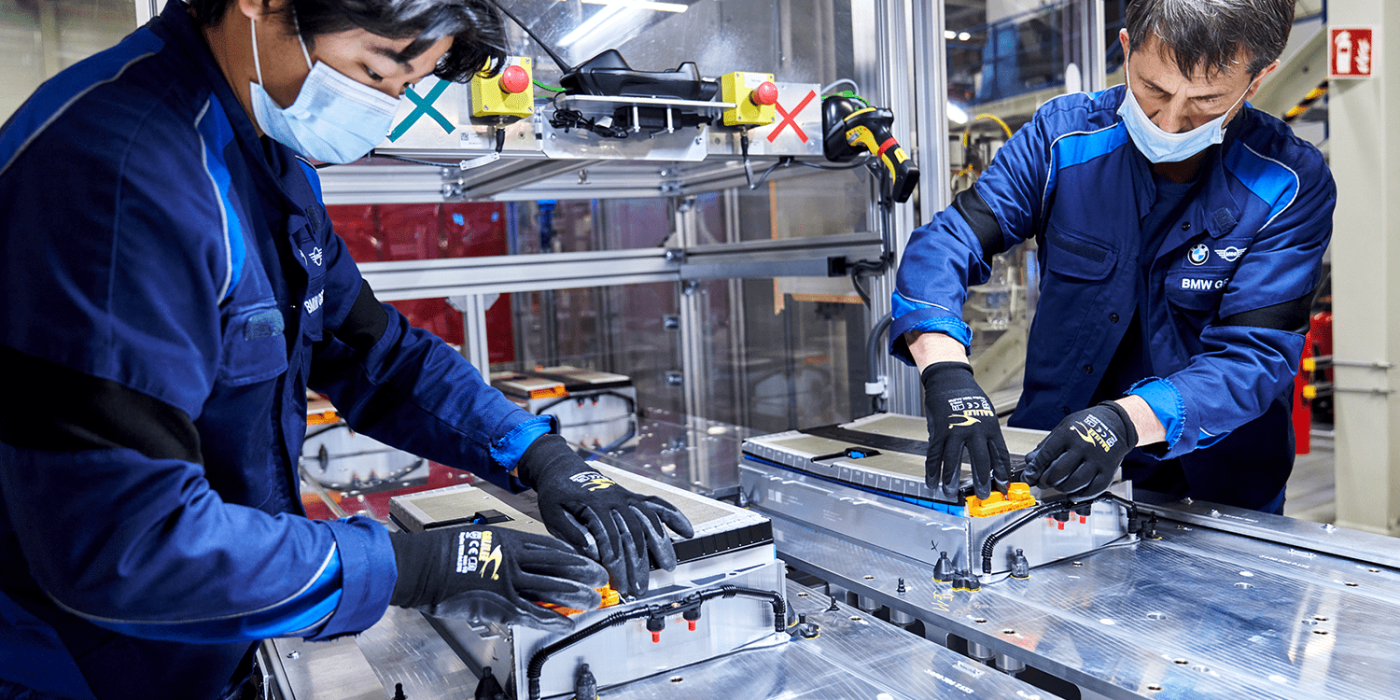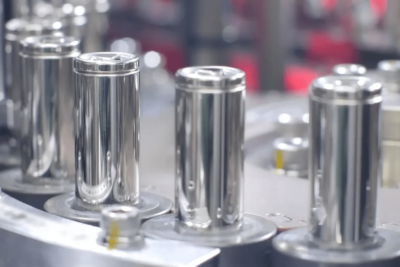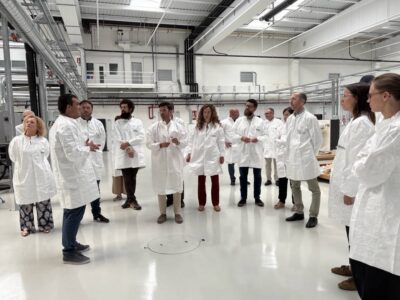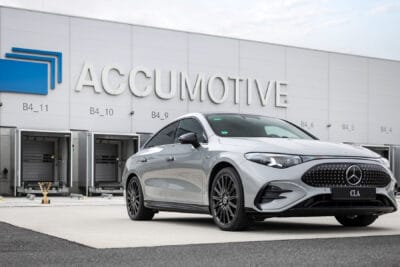BMW expands EV component production in Leipzig
The BMW Group has presented plans on how to expand the capacities for EV component production at the Leipzig site by 2024. In the future, eight production lines are planned on which various production steps of battery assembly will take place.
++ This article has been updated. Kindly continue reading below. ++
The two existing battery module lines will be expanded by another line and five cell lacquer lines in the coming year. According to the BMW announcement, two new high-voltage battery assembly lines will be commissioned in 2024, which will then be used, among other things, in the e-version of the Mini Countryman, which will also be built in Leipzig in the future. Until then, the ready-to-install high-voltage batteries will probably be assembled in Dingolfing – the BMW Group’s only German location for this task to date.
On the battery module lines, the purchased cells are combined into modules. On the lines for painting the cells, they are painted – as the name suggests. However, it is not a matter of appearance: the housings of the prismatic cells are coated with a layer several millimetres thick, which serves as additional protection or insulation. This is to make the batteries more robust.
The component lines are being built on the sites where the i3 and the i8 PHEV sports car were previously built. By summer 2022, over 250,000 i3s and 20,000 i8s had been built there. The employees who previously assembled the two models will also now continue to be employed in component production. There are currently 700 people working in battery component production at the Leipzig site, and by 2024 there will be more than 1,000.
In total, the company says it is investing more than 800 million euros in the development of EV component production at the site by the end of 2024. “We are working consistently to advance the transformation to electromobility,” says Markus Fallböhmer, Head of Engine and E-Drive Production at BMW AG. “and we continue to develop our e-drive production network to make it happen. From 2024, the entire process chain for high-voltage battery production will run not just at Dingolfing but at Leipzig as well.”
For its current e-vehicles – from the iX1 and iX to the electric flagship i7 – BMW relies on prismatic cells, which are painted and assembled into modules in-house as described above. For the upcoming EV platform for the ‘New Class‘, however, the Munich-based company is aiming to switch to round cells and structural battery packs. So far, three cell suppliers have been confirmed for this: CATL and Eve Energy from China have been confirmed for some time. Only this week it became known that BMW will purchase round cells from Envision AESC for the upcoming production of electric SUVs in the US plant Spartanburg.
Update 01 February 2023
A few months after the announcement, BMW has now started up the first of the cell coating lines at its Leipzig plant – four more are to follow. As BMW writes, all of the planned cell paint lines are to go into series production this year at intervals of around two months.
In addition to the two existing production lines for battery modules and the aforementioned battery cell painting lines, another battery module line and two assembly lines for the production of high-voltage batteries will be added by April 2024. “From 2024 our plant here in Leipzig will be able to run the entire process chain for high-voltage battery production,” says Markus Fallböhmer, Head of Battery Production at the BMW Group. “So we will be making an important contribution to the transformation to electromobility.”
In this process, the supplied battery cells (for the current vehicles, these are still prismatic cells) are first painted, and then assembled into modules. Subsequently, the modules are assembled into a ready-to-install battery. According to BMW, the new plant can paint more than 10 million cells annually and manages over 2,300 cells per hour. Painting is used for protection and is intended to increase robustness.
The painted cells are produced for battery module production in Leipzig, which makes modules for the i4 (vehicle production at the Munich plant) and iX1 (Regensburg plant) models. Another battery module line at the Leipzig plant produces EV components for the BMW iX (Dingolfing plant). From the end of the year, however, the cells and modules will also be used in Leipzig itself: Production of the new generation of the Mini Countryman, which will also be available as a BEV for the first time, will then start there.
bmwgroup.com, bmwgroup.com (update)





0 Comments